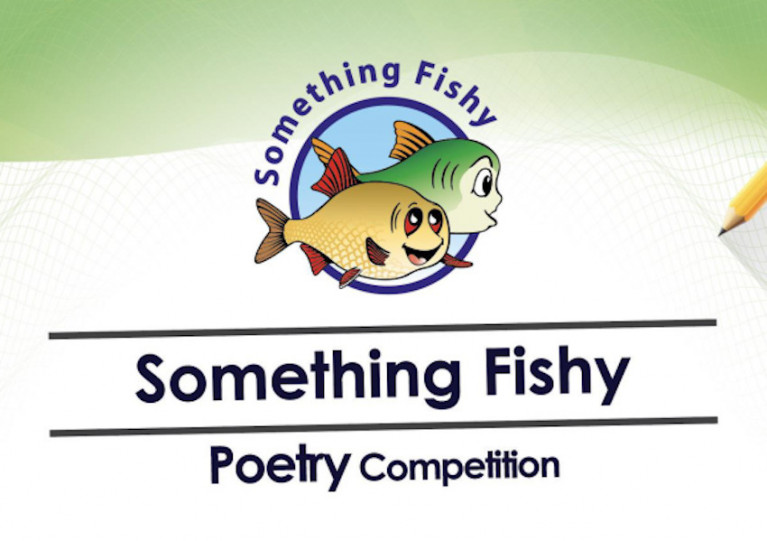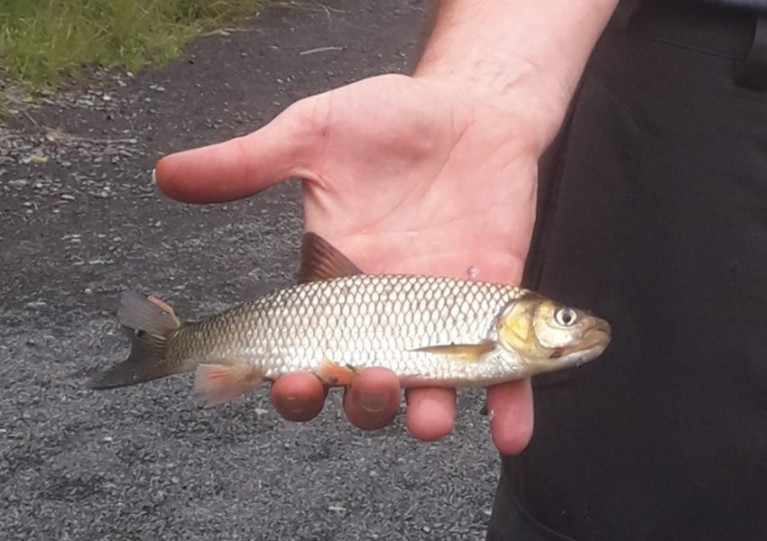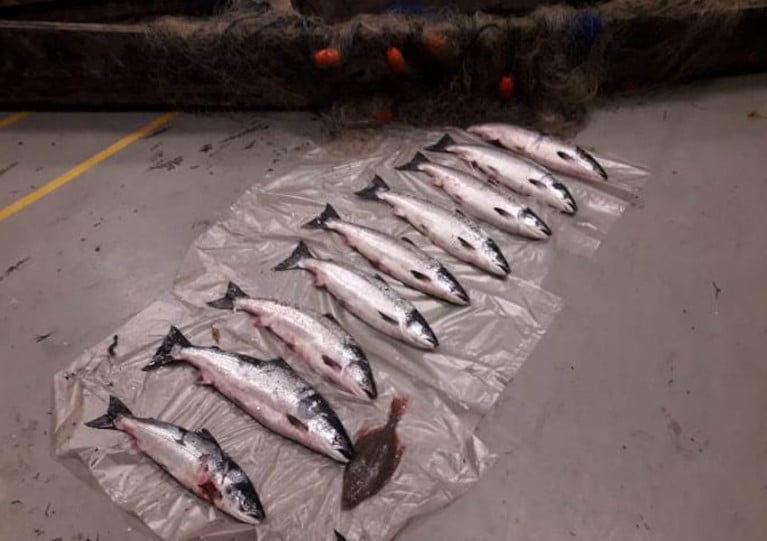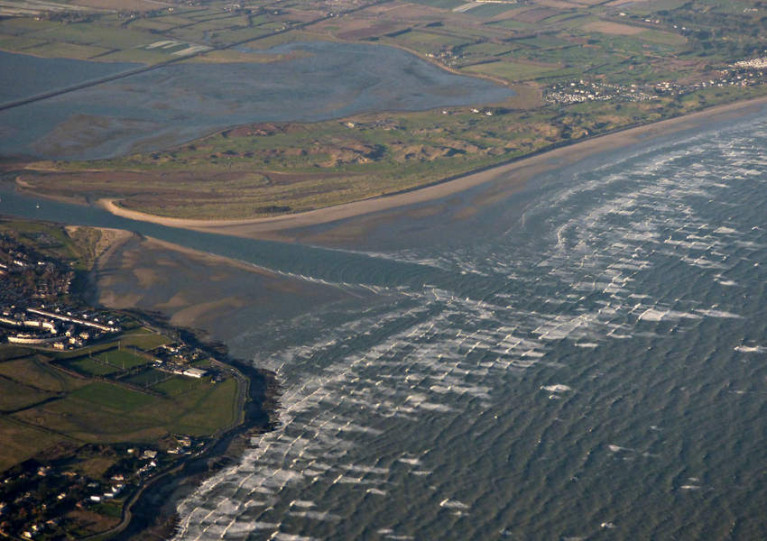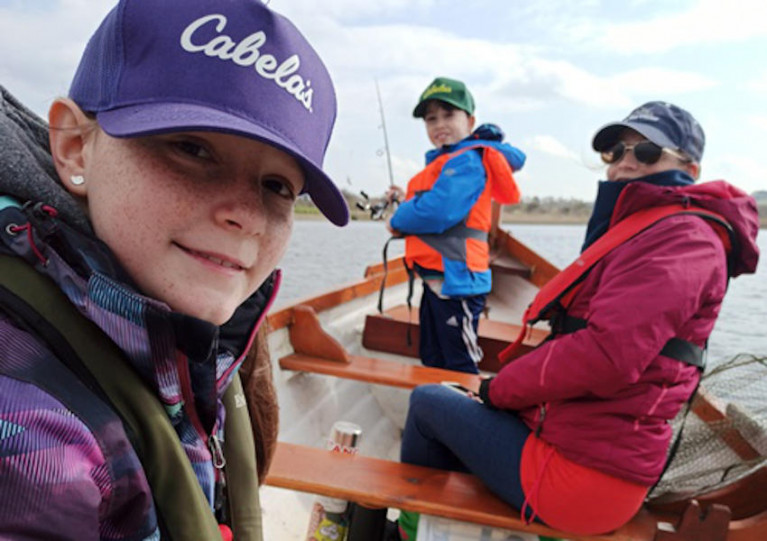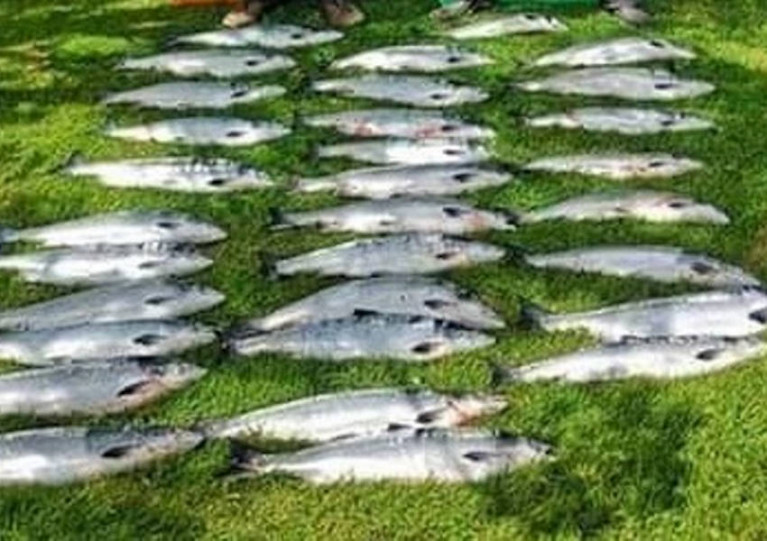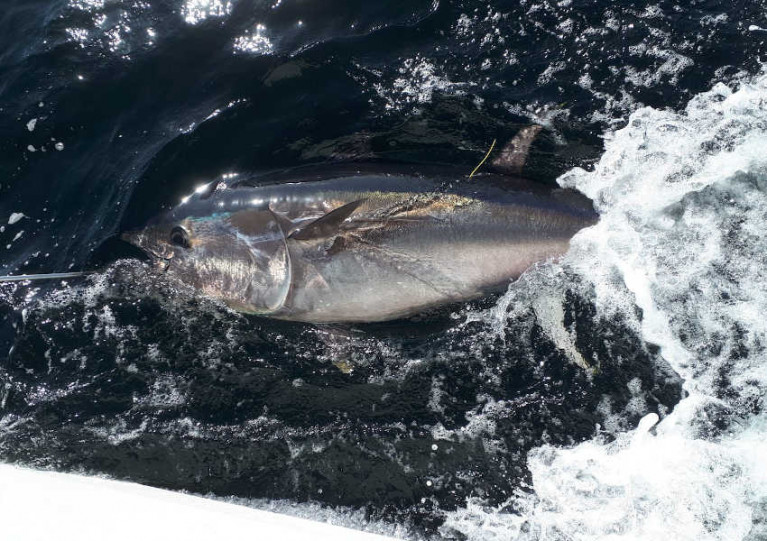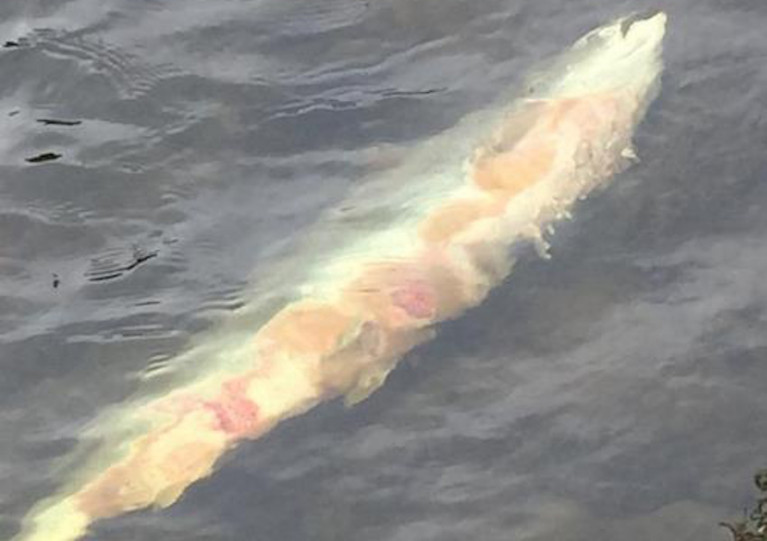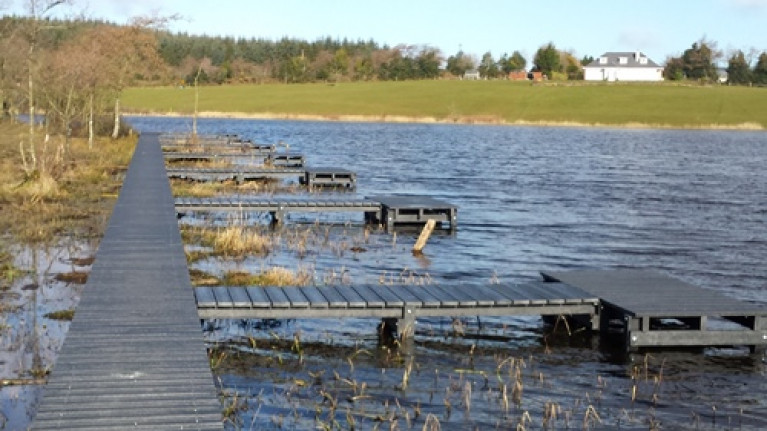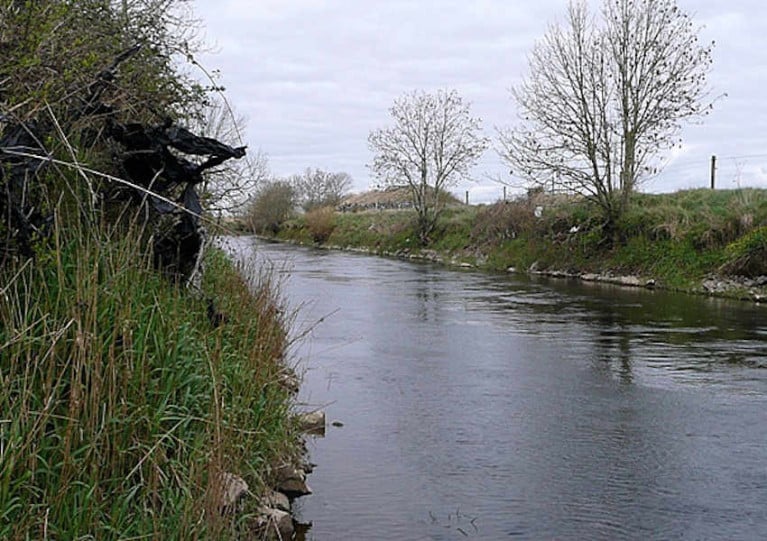Displaying items by tag: Inland Fisheries Ireland
Winners Announced In ‘Let’s Fish’ National Poetry Competition
Six young poets have been selected as winners of the ‘Let’s fish’ national poetry competition which took place earlier this summer.
The contest was organised by Inland Fisheries Ireland in conjunction with the Blackrock Education Centre, to keep pupils engaged while out of the classroom during coronavirus restrictions.
Entries were received from across Ireland under the title ‘Let’s fish’, with pupils encouraged to research the Something Fishy online resource and asked to write a five-line poem on the topic.
And the poems revealed how much fish and fishing means to our younger generation, IFI says.
In the Fifth Class category, Oran from CBS Primary School in Dundalk took first prize, followed by Ethan of Scoil Naomh Buithe in Monasterboice, Co Louth and Philip of Scoil Réalt na Mara in Tuosist, Co Kerry.
Meanwhile, Millie of St Patrick’s NS in Greystones, Co Wicklow placed first in the Sixth Class category, while second prize went to Leah of Sion Mills Primary School in Co Tyrone and third to Dara from Scoil Phadraig in Westport.
IFI says it will share the winning entries across its social media platforms over the coming weeks.
Invasive Fish Species Chub Confirmed In Shannon Tributary
Invasive chub have been confirmed in the River Inny in Longford, according to Inland Fisheries Ireland (IFI).
A single fish was caught on rod and line at one of a number of spots where IFI staff recorded possible sightings following reports from members of the public.
Chub (Squalius cephalus) are non-native to Ireland, with the potential to compete with native species for food and space as well as be a carrier of fish diseases and parasites.
The River Inny — a tributary of the Shannon — is the only Irish river in which they have been recorded thus far, and removal operations between 2006 and 2010 were thought to have eradicated the species from the system.
It is not yet clear whether the current chub are linked to the original population or were more recently introduced.
However, the threat of chub spreading through the Shannon system “is of real and pending concern to the biodiversity of Ireland’s biggest catchment”, says the fisheries body.
IFI’s head of research Dr Cathal Gallagher explained: “Ireland’s rivers are ecologically important ecosystems, which support significant recreational fisheries for native and established fish species.
“Non-native fish species threaten these ecosystems and the game and coarse fisheries that they support — potentially in unforeseen ways — and are thus a cause for concern.”
IFI appeals to anglers to protect Ireland’s fisheries by not moving fish between watercourses for any reason and to submit any sightings directly to IFI or on the hotline at 1850 347424 or 1850 FISH24.
Firearm Discharged In Seizure Of Illegal Salmon Net On River Suir
A firearm was discharged by alleged offenders as fisheries officers responded to reports of an illegal net on the upper tidal River Suir late last month.
Nobody was injured in the incident as Inland Fisheries Ireland officers seized a boat, net and nine wild salmon near Carrick-on-Suir during a routine patrol on the night of Tuesday 28 July.
Gardai attended the scene and the matter is being investigated, the fisheries body adds.
IFI director David McInerney said: “The salmon caught by this illegal net were on the final leg of an arduous journey to reach their native spawning rivers.
“The fish were fresh in from the sea, having survived a journey from either the coastal waters off west Greenland or the Faroe Island, before being cruelly killed by an illegal net, a few miles from their final destination.
“It cannot be stressed enough that nobody should purchase wild salmon that does not carry either a green or white gill tag through the mouth and gill clearly displaying the name Inland Fisheries Ireland.
“I would like to highlight the dedication and courage demonstrated by the officers in tackling illegal fishing in the face of significant personal danger.”
Two Men Plead Guilty To Illegal Net Fishing In Malahide
Two men have pleaded guilty on charges relating to illegal net fishing at Broadmeadow Estuary in Malahide, Co Dublin.
On Tuesday 28 July, Maxim Loan and Gheorgie Pingica appeared before Judge Bernadette Owens at Swords District Court in respect of breaches of fisheries legislation at Broadmeadow Estuary on 5 August last year.
Fisheries officers from the Dublin District of Inland Fisheries Ireland (IFI) said that on the night in question, surveillance was carried out on a net that had been staked in the estuary.
Later that night, IFI officers observed two individuals retrieving and servicing a net and placing it in a vehicle.
Officers carried out a search and seized a net 68 meters long which contained mullet and flounder, and the men were apprehended.
Judge Owens convicted Loan and Pingica under Section 102 of Fisheries Amendment Act and imposed fines totalling €1,000, and awarded costs to IFI of €1,814.
Brian Beckett, director of IFI’s Eastern River Basin District, said: “Our officers enforce fisheries laws in both covert and non-covert operations dedicating significant surveillance man-hours in the protection of our valuable fish populations.
“Illegal nets are very damaging to vulnerable estuary fish stocks including salmon, sea trout, bass and mullet along the East Coast. This conviction highlights the persistent issue of illegal net fishing which is a serious environmental crime and will not be tolerated.”
Public Safety Guidelines Reminder For Ireland’s Anglers
Inland Fisheries Ireland (IFI) is reminding anglers to follow safety guidelines on the water and to be aware of potential dangers and risks.
Anglers are also reminded to follow HSE and Government advice regarding physical distancing and outdoor gatherings to prevent the spread of coronavirus.
According to the latest figures from Water Safety Ireland, a total of 105 people — 25 female and 80 male — drowned in Irish waters last year.
Over the last 10 years, 1,200 people drowned in Ireland — an average of 10 every month — with many drownings happening quickly, silently and in cooler water with hidden currents that impairs the ability to swim and float.
As angling is a water-based activity, anglers often have to deal with changing conditions and hidden dangers.
IFI is reminding anglers to exercise great care for their own safety and that of angling partners.
While wearing a life jacket on a boat is mandatory, Inland Fisheries Ireland would advise anglers to wear one when on or near water.
Anglers are asked to follow some simple safety tips when going fishing:
- Wear a life jacket
- Follow advice on warning signs, permits and notices
- Don’t take any risks when wading or fishing from boat, shore or bank
- Check the weather forecast and tide tables before you go
- Take time to observe weather, water and tide conditions while fishing
- Fish with a partner/buddy or let someone know where you’re going
- Take a fully charged mobile phone in a waterproof case/bag
- Wear appropriate clothing and footwear
“There are 273,000 domestic anglers in Ireland and many of these anglers have been fishing for years and may feel experienced being near or on the water,” says Suzanne Campion of IFI.
“However, we would appeal to anglers to follow these simple safety steps at all times. Under current conditions anglers that are fishing are being reminded to adhere to IFI’s angling guidelines. Government advice to stop the spread of Coronavirus is Be Responsible, Be Safe.
Speaking about safety precautions in regard to overhead electricity wires, Arthur Byrne, public safety manager at
ESB Networks also reminded about safety precautions with regard to overhead electricity wires.
Public safety manager Arthur Byrne says: “We would like to remind the public to keep a safe distance from overhead electricity wires; coming close to these live wires is extremely hazardous and can be fatal.
“ESB Networks asks anglers to never fish or cast where there are overhead wires nearby as coming close to electricity wires with something you are holding puts you at risk of electric shock or electrocution.
“In case of an emergency or if you see something unusual, please stay clear and immediately call the ESB Networks emergency number 1800 372 999. Further information is available at www.esbnetworks.ie/staying-safe”
IFI has a detailed guide to safety available online. You can also download a free copy of the Angling Safety Checklist and the more detailed Angling Safety Guidelines.
The hospitality industry and general public alike have been reminded not to purchase illegally caught salmon or sea trout after illicit nets were seized on a fishing boat off Cork last week.
Fisheries protection officers with Inland Fisheries Ireland (IFI) boarded the vessel off the Cork coast last Monday 13 July on which they seized 98kg of salmon and 256 metres of illegal net.
IFI notes that the incident was one of several that took place earlier this month, with similar seizures in Donegal and Mayo.
“The risk of targeted netting of salmon at sea remains the highest priority for our protection staff, who have seized 15 nets in the South Western River Basin region so far this season,” said IFI’s deputy chief executive Dr Greg Forde.
Only salmon or sea trout that have been caught by licensed commercial salmon fishermen may be sold to the public and hospitality industry, and must bear a colour coded green or white gill tag — or for wild imported salmon, a yellow tail tag.
Anglers are prohibited from selling any salmon or sea trout caught by rod and line. In addition, rod-caught salmon must have a blue tag affixed, IFI added.
Fisheries officers carry out regular inspections of premises to deter the illegal trade of salmon and sea trout. Reports of suspected illegal activity can also be made directly to IFI staff or on the confidential hotline at 1890 34 74 24 or 1890 FISH 24.
Twenty-two charter angling vessels have been granted authorisation to participate in a bluefin tuna data collection programme after a successful pilot last year.
The Tuna CHART (CatcH And Release Tagging) programme will see skippers catch, tag, measure and release Atlantic bluefin tuna for data collection purposes off the Irish coast.
The authorised vessels, which are located in Cork, Clare, Galway, Sligo and Donegal, will support an international scientific programme to increase knowledge of the behaviour and abundance of bluefin tuna in Irish waters and across its distribution generally.
Atlantic bluefin tuna, the largest tuna in the world, frequent Irish coastal waters to feed during the species’ annual migration through North Atlantic waters.
The bluefin tuna is prized by sea anglers for its power and fighting ability and is a very valuable commercial species, though there is currently no sport or commercial fishery for bluefin tuna in Ireland.
The new programme, which has been developed by Inland Fisheries Ireland and the Marine Institute in partnership with the Sea Fisheries Protection Authority and the former Departments of Agriculture, Food and the Marine, and Communications, Climate Action and Environment, will operate again in 2020 having commenced on a pilot basis in 2019.
Eamon Ryan TD, minister with responsibility for inland fisheries, said: “The 22 angling vessels authorised by my department, increased from 15 last year, will contribute substantially to essential bluefin tuna data collection as they migrate along the Irish coastline.
“The recreational fisheries sector is crucial in the delivery of this research programme and we look forward to continue working with all the State agencies involved.
“I want to acknowledge the key role of the authorised charter skippers and their crews who are bringing their unique expertise to bear on providing valuable data for scientific purposes, and the ‘citizen scientist’ anglers who will catch the fish. The fact that 209 fish were tagged last year with no mortalities is a great achievement by the skippers.”
The Sea Fisheries Protection Authority and Inland Fisheries Ireland will undertake inspections and patrols around the coast to ensure this remains a strictly controlled programme.
A full list of authorised skippers can be found at www.fisheriesireland.ie/bluefin
Inland Fisheries Ireland (IFI) says it has recently received reports that individual fresh-run wild salmon have been encountered in the River Leannan, Co Donegal and River Corrib in Co Galway displaying suspected signs of red skin disease (RSD).
Low incidences of this disease were first documented in 2019 in several European salmon stocks. In the past few weeks, suspected cases have again been reported in small numbers of returning salmon in Denmark, Norway and Scotland.
In Ireland last year, suspected incidences of RSD were reported in 56 salmon from 17 rivers throughout the country. The majority of these reports were in June and July with only single incidences reported prior to and after this time.
Salmon affected by RSD have a characteristic red-spotted rash on their underbelly and may appear lethargic or moribund. The rash can either be localised or extend along some or most the length of the fish.
As the disease progresses, skin lesions, signs of bleeding and skins ulcers can develop primarily along the belly area and extend to the head and tail. Secondary fungal infection can further develop which may ultimately result in death of the salmon.
Within the operational constraints imposed by the Covid-19 National Public Health Emergency, IFI staff are continuing to liaise with the Fish Health Unit in the Marine Institute and international colleagues to monitor and respond to the situation.
As part of this, where practicable, anglers and fishery owners are asked to report any incidences of salmon with signs of RSD to IFI to help determine the occurrence of the disease nationally.
Anglers who capture such salmon are advised to follow normal biosecurity procedures and disinfect tackle, waders and equipment.
Until the cause of the disease has been determined and the risk of spreading the disease established, affected salmon should not be removed from the water.
Dr Paddy Gargan, senior research officer at IFI, said: “We are asking anglers and fishery owners to remain vigilant and report any catches of salmon with signs of this disease to us as soon as possible within the constraints imposed by the Covid-19 National Public Health Emergency.”
Anglers are asked to forward any reports of salmon with signs of RSD along with photographs and an estimate of fish weight to [email protected] or call IFI’s 24 hour confidential hotline number on 1890 34 74 24 or 1890 FISH 24.
RTÉ News reports that anglers are returning to many of Ireland’s most popular fisheries since the first easing of Covid-19 restrictions.
Since this past Wednesday 6 May, as announced by Inland Fisheries Ireland, anglers may fish from riverbanks within 5k of home on most State fisheries (except Galway and Moy) as well as ESB fisheries, provided they observe social distancing protocols.
Boat anglers are subject to RNLI safety guidelines, which currently recommend avoiding the water for any recreational activities.
The National Coarse Fishing Federation told RTÉ News it hopes for a co-ordinated cross-border approach “to opening up our sport” in the coming months, amid fears for the health of the angling tourism industry which remains shut down.
Minister Welcomes Formal Partnership Between IFI & Cairde Na Chláir For Conservation Efforts On Clare River
Sean Canney, Minister of State with responsibility for the inland fisheries sector, has welcomed the signing of a memorandum of understanding (MOU) between Inland Fisheries Ireland (IFI) and Cairde na Chláir, representing four of its member angling clubs on the Clare River.
The MOU will enable both parties to collaborate on the conservation and development of brown trout and salmon and their habitat on the Clare River.
Commenting on the significance of the partnership, Minister Canney said: “I fully support the signing of this MOU which represents the formalisation of a long standing collaborative relationship between Inland Fisheries Ireland and the Cairde na Chláir.
“This partnership is significant not just for the two organisations but for the Western River Basin District and the MOU will act as the motivation to develop the five year plan but also to further incentivise future collaborations and projects”.
IFI says this MOU is a declaration of a commitment from both parties to the development of a five-year plan that is focused on the conservation and development of brown trout and salmon and their habitat on the Clare River in the Western River Basin District.
It will enable a closer working relationship between both parties and recognises that conservation of the species and its habitat as the core guiding principle of this relationship, the inland fisheries body added.
The MOU was signed by Richard Jordan on behalf of the Cairde na Chláir and co-signed by the participating angling clubs and Suzanne Campion, IFI’s head of business development.
Due to current public health measures, parties will commence work on meeting the objectives of the MOU via virtual meetings.
IFI chief executive Dr Ciaran Byrne said: “During a time when we see the changes to our natural environment from the impact of climate change, this partnership agreement will work to ensure a plan is formed to maximise sustainable benefit for the species.”
He added: “Both parties hold the value of conservation and development of fisheries at the core of their organisation. We look forward to working with the clubs that comprise the Cairde na Chláir, learning from one another and developing joint initiatives at a time when collaborative work is critical for the future of our fisheries resource.”
Richard Jordan, on behalf of the Cairde na Chláir, said: “We welcome the signing of this MOU between clubs of Cairde na Chlair and Inland Fisheries Ireland to begin the process of creating a five year plan for the conservation and development of our brown trout and salmon.
“The Cairde na Chláir clubs involved in this MOU are the Milltown Anglers, Cregmore Athenry Anglers, St Colmans Anglers and the Tuam Anglers Association. The formalisation of this MOU marks an important consolidation of our working relationship with Inland Fisheries Ireland.”


























